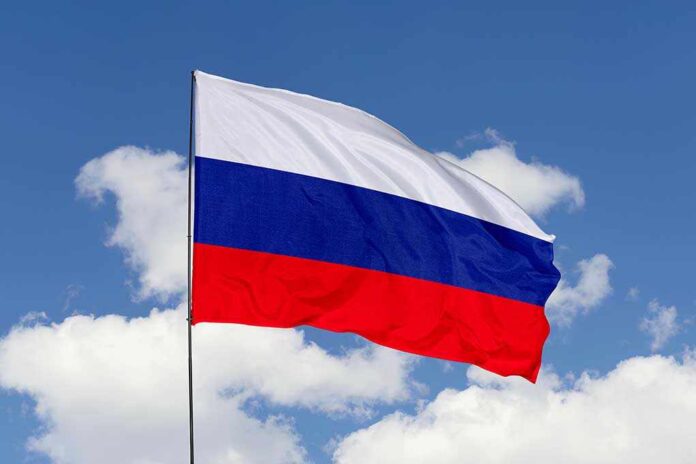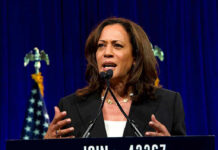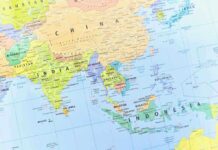Russia’s top security official warns of World War III if Western troops enter Ukraine, threatening a nuclear response against any perceived aggression while simultaneously proposing new arms control talks.
Quick Takes
- Sergei Shoigu, Putin’s close ally and Russia’s Security Council Secretary, has issued stark warnings about using nuclear weapons if Western “peacekeepers” enter Ukraine
- Russia updated its nuclear doctrine in November 2024, claiming the right to use nuclear weapons if either Russia or Belarus faces aggression
- Shoigu accused European nations of preparing for war with Russia by 2030 and suggested Ukraine is nearing economic collapse
- Despite nuclear threats, Shoigu expressed willingness to resume nuclear arms control talks with the United States
- Russia claims Western forces in Ukraine would be an attempt to control the country’s valuable mineral resources rather than genuine peacekeeping
Russia Threatens Nuclear Response to Western Peacekeepers
Sergei Shoigu, a longtime Putin ally recently appointed as Secretary of Russia’s Security Council, has issued dire warnings about potential escalation of the Ukraine conflict. Shoigu specifically targeted proposals by France’s President Emmanuel Macron and other Western allies to deploy peacekeeping forces in Ukraine, stating that such a move could trigger a nuclear response from Moscow. The statements reflect growing tensions as Russia portrays Western support for Ukraine as an existential threat to Russian security, raising alarming comparisons to Cold War nuclear brinkmanship.
Shoigu made it clear that Russia perceives any Western military presence in Ukraine as a direct NATO intrusion, stating: “Where will these ‘peacekeepers’ come from? They will be units of the same NATO countries, against the presence of which Russia opposed even before the [war], which began largely because of this threat – the deployment of NATO military infrastructure in Ukraine, on our historical territory.” This framing reinforces the Kremlin’s narrative that the Ukraine conflict represents a defensive action against Western encroachment rather than an invasion of a sovereign nation.
Nuclear Doctrine Changes and European War Preparations
Central to Russia’s threats is a reported update to its nuclear weapons doctrine. “In November 2024, revisions were introduced to the Basic Principles of State Policy of the Russian Federation on Nuclear Deterrence, according to which Russia reserves the right to use nuclear arms in the event of aggression against it or the Republic of Belarus, including with the use of conventional weapons,” Shoigu explained. The inclusion of Belarus, a close Russian ally that has permitted Russian nuclear deployments on its territory, effectively expands Russia’s nuclear umbrella and creates new potential flashpoints.
“An undisguised campaign is unfolding in Europe to prepare for a military conflict with the Russian Federation. Possible timeframes for such a clash are being announced at various levels—from three to five years. As early as 2030, European politicians and the military want to be ready to fight us,” Shoigu claimed. The Russian security chief further suggested that European nations are actively planning for armed conflict with Russia, conducting exercises and developing war scenarios that allegedly include nuclear options.
Resource Control and World War III Warnings
Shoigu framed Western interest in Ukraine not as humanitarian concern but as a resource grab, claiming peacekeepers would primarily aim to control Ukraine’s valuable mineral deposits. This economic dimension adds another layer to Russia’s justification for opposing international involvement. The rhetoric casts Western powers as exploitative colonial forces rather than defenders of Ukrainian sovereignty, appealing to anti-Western sentiment within Russia and potentially in other nations skeptical of Western motives.
“Sensible politicians in Europe understand that the implementation of such a scenario [putting Western troops on the ground in Ukraine] could lead to a direct clash between NATO and Russia and subsequently to World War Three,” Shoigu warned. This explicit reference to a potential global conflict represents some of the most direct threatening language from a senior Russian official since the invasion began, clearly designed to deter Western nations from deeper military involvement in Ukraine.
Diplomatic Opening Amid Nuclear Threats
Despite the alarming rhetoric, Shoigu’s statements included a surprising diplomatic opening. He expressed Russia’s willingness to resume nuclear arms control discussions with the United States, after Moscow suspended its participation in the New START treaty, the last remaining nuclear arms control agreement between the two nations. This apparent contradiction – threatening nuclear escalation while simultaneously proposing nuclear limitation talks – suggests Russia may be using nuclear posturing primarily as leverage while seeking diplomatic engagement on its own terms.
The timing of these statements has raised eyebrows among observers, as they come during a period of leadership transition in the United States. Some analysts suggest Moscow may be positioning itself for negotiations with the incoming administration rather than with current leadership. Russia has maintained that Ukraine’s economy is collapsing and Europe cannot sustain its support indefinitely, potentially indicating a strategy of waiting out Western resolve while maintaining a threatening posture to discourage further escalation of military aid.
Sources:
- https://www.express.co.uk/news/world/2045841/russia-sends-horror-nuclear-warning
- https://www.irishstar.com/news/us-news/russia-nuclear-war-ww3-ukraine-35110688
- https://www.newsweek.com/shoigu-putin-ukraine-rare-earths-2063492











